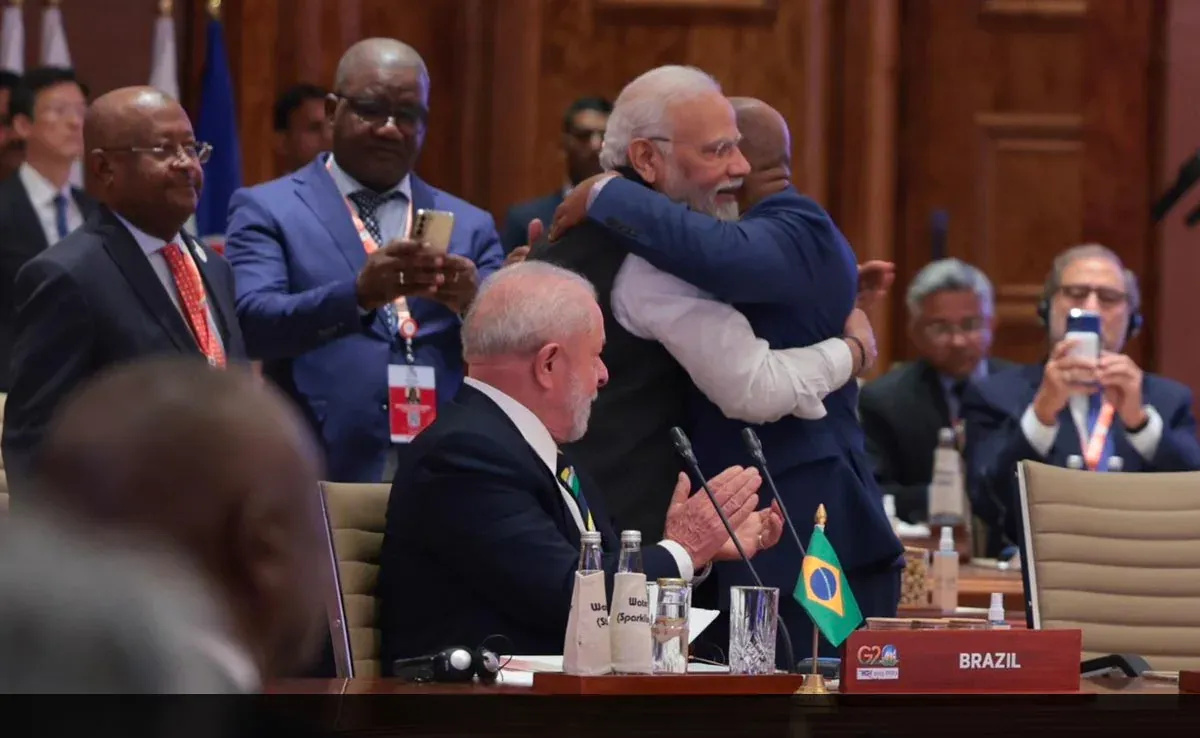We have a lot to bring to the G-20 table: African Union chief
Context:
The President of Comoros, Mr Assoumani, stated in an exclusive interview with The Hindu that G-20 members should finance the industrialization of Africa. He asked the G-20 economies to use African resources to produce goods in Africa, assuring the members that Africa is ready to do all it takes to address the immigration crisis facing the European countries.
What are the challenges faced by Africa?
- Conflict and Instability: Political unrest, civil wars, and other conflicts are commonplace in many African nations. These disputes frequently emerge from difficulties like racial tensions, administrative concerns, and resource competitiveness. The AU tries to mediate and settle these disputes, but it has a lot of obstacles to overcome.
- Political Governance: Some African nations experience problems with corruption, flimsy institutions, and a dearth of democratic procedures. Though it might be difficult to have an impact on member states’ internal affairs, the AU seeks to promote democracy and good governance.
- Economic development: Despite recent economic growth in Africa, the continent still faces several economic difficulties, including extreme poverty, high unemployment rates, and income inequality. The AU must deal with scarce resources and infrastructure gaps while attempting to further regional integration and economic development.
- Healthcare and Disease: The burden of infectious diseases like HIV/AIDS, malaria, and the current COVID-19 pandemic are among the health concerns facing Africa. Healthcare access continues to be difficult, particularly in rural areas.
- movement and Displacement: Due to causes including conflict, economic opportunities, and climate change, Africa has seen significant intra- and inter-regional movement. It is a difficult issue to manage migration and attend to the rights and needs of migrants.
What advantages would the African Union have if they joined the G20?
- Economic Growth and Investment: The G20 nations, which have some of the largest economies in the world, may invest in Africa to promote economic growth and development. Increased FDI from G20 members could help with industrialization, infrastructure development, and job creation in African nations.
- Industrialization: The G20 may assist Africa in putting more value on its raw materials and natural resources, which could result in economic diversification and less reliance on commodity exports. The G20 could also provide assistance, expertise, and investment for the continent’s industrialization efforts.
- Trade opportunities: The G20 contains significant trading nations. A closer relationship between the AU and the G20 might make trade agreements and market access easier, fostering regional trade and economic integration within Africa and with the G20 economies.
- Conflict Resolution and Peacekeeping: Although the G20’s main objective is economic, it can have an impact on conversations about peace and security. Collaboration between the AU and G20 countries may result in more funding for peacekeeping and conflict resolution initiatives in Africa’s conflict-prone regions.
- Mitigation and Adaptation to Climate Change: The G20 can contribute significantly to international efforts to address climate change. Increased funding for climate adaptation and mitigation initiatives in Africa may be the consequence of collaboration between the AU and G20 nations, assisting the continent in addressing climate-related issues.
How can investments in Africa help with their drought situations?
- Water Infrastructure: Investing in water infrastructure, such as irrigation systems, dams, and reservoirs, can assist in better storing and managing water supplies. Water can be stored during rainy seasons and released during dry ones by well-maintained reservoirs, ensuring a more dependable water supply for agriculture and populations.
- Drought-Resistant Agriculture: By investing in the development of drought-resistant crop types and farming methods, it is possible to increase the drought resistance of African agriculture. This involves encouraging the adoption of seeds resistant to drought and techniques like conservation agriculture.
- Water harvesting and storage: Rural communities can gather and store rainwater for drinking and agricultural use during dry spells by investing in small-scale water storage systems and rainwater harvesting equipment.
- Reforestation and Erosion Control: Investments in reforestation and erosion control projects can aid in preventing desertification and soil erosion, two problems that are frequently made worse by dry conditions.
- International Cooperation: To gain access to funds and technical know-how for drought mitigation projects, African nations can cooperate with international organizations and donor agencies.
How are the Ukrainian conflict and India’s ban on Rice affecting Africa?
- The African Union has been debating solutions to deal with the effects of the conflict in Ukraine, which has affected fertilizer and agricultural supply routes to Africa. In addition to calling for a halt to the violence, President Assoumani highlighted alarm over its effects on food security in Africa.
- He brought up India’s recent prohibition on rice exports and emphasized how important Indian rice is to Africa. Given the food crisis in numerous African nations, he emphasized the necessity for India to intervene and secure supplies. President Assoumani further emphasized the opportunity for India to assist Africa in improving its capacity.
What are the benefits for India if the African Union is part of G20?
- Enhanced Economic Partnerships: Within the G20 framework, India may strengthen its economic connections with African nations. A framework for deeper economic interaction, including trade and investment, with a continent that has enormous growth potential would be made available by the AU’s membership.
- Access to African Markets: The AU’s participation in the G20 could promote trade agreements and Indian products and services’ ability to enter African markets. Given the burgeoning middle class and developing consumer markets in Africa, this would be especially beneficial.
- Access to Natural Resources: Minerals and oil are among the abundant natural resources found in Africa. The G20’s increased interaction with the AU may boost India’s businesses and the country’s energy demands’ access to these resources.
- Opportunities for Investment: The G20 platform may encourage Indian companies to engage in African infrastructure, industry, and agriculture, thereby generating profits and stimulating India’s economy.
- Influence diplomatically: India could use the G20 to strengthen its position in Africa. Addressing common global issues like terrorism, climate change, and pandemic preparedness may benefit from this.





